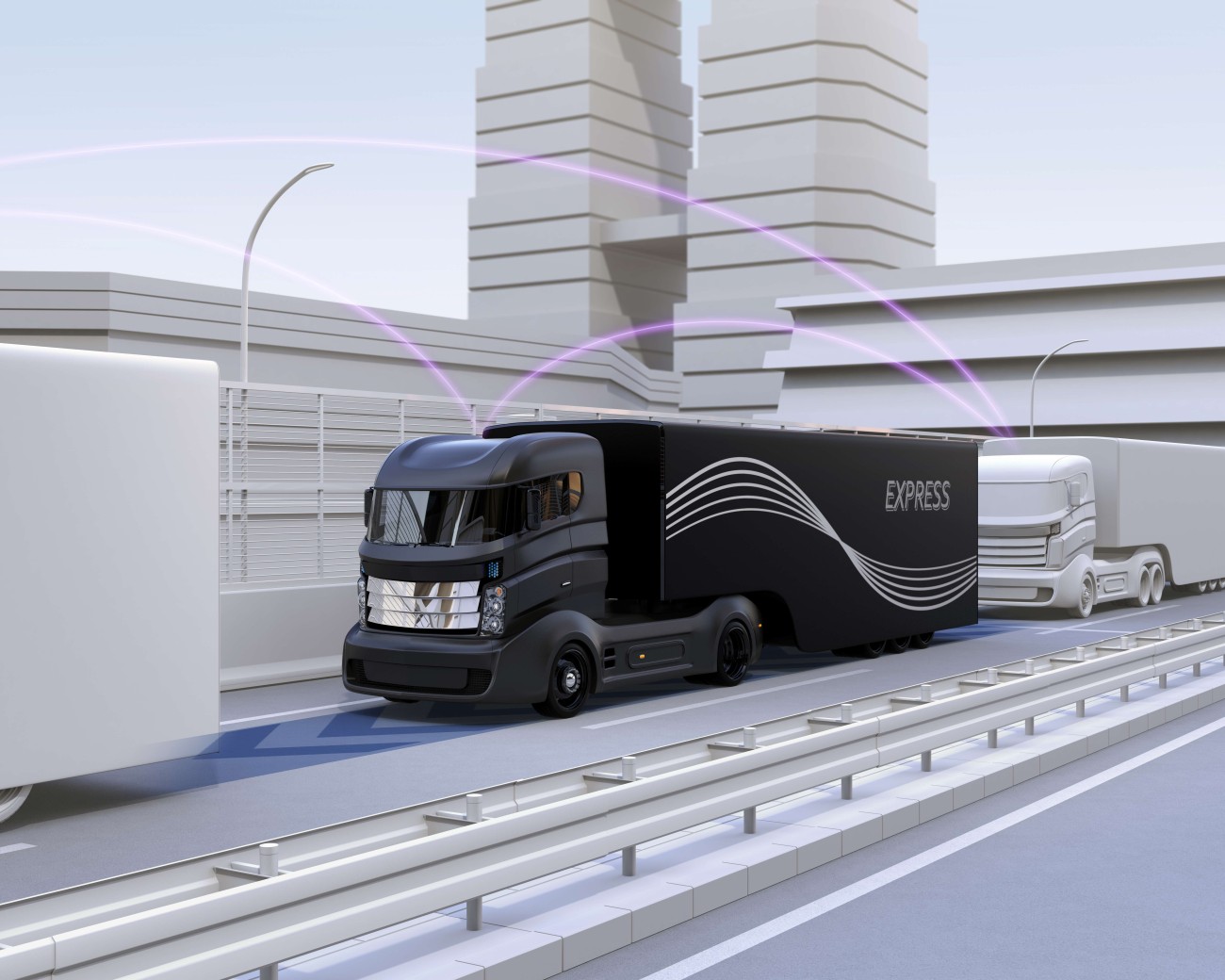Increasing competition and the associated price pressure are forcing road freight carriers to offer the most cost-efficient transport options possible. Platooning is a technology which will help reduce costs and emissions in road freight transport in the future. Platooning is being driven primarily by rapid developments in the field of communications technology and enables trucks to drive behind each other in automated platoons using car-to-car communications.
There is a great need for research in the planning and routing of platoons. While most publications in this area take a central planning perspective, this research project will investigate a decentralized planning approach for the formation of platoons. The decision to form a platoon is made by an learning AI implemented in the vehicle.
Thus, this research project aims to investigate, based on simulation, whether an AI-based decentralized planning approach can be used to form platoons to realize cost savings for transportation companies. Furthermore, the goal of the research project is to select the architecture of the learning AI to maximize cost savings.
For this purpose, a transport network will first be modeled and supplemented by real traffic data which is implemented in a simulation model. The modeling of the individual trucks will be agent-based, which enables the implementation of learning AI based on individual trucks.
The architecture of the AI is chosen so that the agents make autonomous decisions based on data fed to them and changing environmental parameters. Adapting to the changing environment requires a method of active learning. Simple contextual models or methods like “reinforcement learning” or the latest developments of “deep reinforcement learning” can be used for this purpose. In reinforcement learning, agent's behavior adapts to changing environmental parameters based on a reward function. Similarly, in this project, individual trucks will adapt to changing conditions of traffic, other trucks, and other data based on a cost function. Input information for the trucks will include a truck's current position, the distance left to travel, its destination point, and the traffic volume at various points in the network. Past values, such as the platoons successfully formed on past trips or the distance already covered as a platoon in the current trip, are the basis for the learning agents.
Project Duration: April 2022 to September 2023
Funding: The project (HOLM-Nr. 2021-02-PA, HA-Nr. 401/21) was funded by the federal state of Hesse and the HOLM-Förderung as part of the measure "Innovations in the area logistics and mobility“ from the Hessian Ministry for Economy, Energy, Transportation and Housing.
Project lead:Felix Roeper



